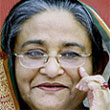
Reports published in Bangladesh Media stated that State Minister for Foreign Affairs Dr Hasan Mahmud last Thursday sought Swiss assistance for strengthening the local government, including giving training to the upazila (sub-district) women vice chairmen. The state minister sought the cooperation when Swiss Ambassador Dora Rapold called on him at his office.
Of course it is a supplement to the concept that stronger local government for the better democracy. But, in Bangladesh, government failed to balance authority and power between Member of Parliament (MP) and the Local Government Representative (LGR). Political observers said that may cause a new imbalance in grassroots level power structure.
On last Monday, Parliament unanimously passed the upazila parishad bill with provisions giving MPs sweeping authority over upazila parishads in their constituencies. The Upazila Parishad (Repealed Act Re-Introduction and Amendment) Bill made it mandatory for the upazila parishads to consult the lawmakers as well as to accept their (MPs) recommendations while making plans for development in respective electoral constituencies.
According to the bill, the upazila parishads will have to keep MPs informed about the proceedings and decisions by sending copies of the minutes of their meetings to the MPs as and when they send those to the government. The upazila nirbahi officer-UNO (upazila executive officer) will be the secretary, instead of chief executive officer, of the upazila parishad concerned and UNO will give the local government body secretarial support, the bill said.
The bill has delegated more power to the lawmakers as advisers of upazila parishads than they had under the Upazila Parishad Act 1998. The 1998 act had made MPs advisers of upazila parishads in their constituencies but did not make it mandatory for the local body to accept their suggestions.
Meanwhile, an influential English daily published a report quoting an expert that a good number of upazila parishads might have difficulty functioning properly as they will have more than one MPs as advisers as per the recently passed upazila bill. “Due to the latest delimitation of parliamentary constituencies, more than 100 upazilas are made up of areas falling in two constituencies and so they might get two lawmakers as advisers,” the report mentioned quoting Tofael Ahmed, a former member of the local government commission. Mr Ahmed also quoted as saying; activities of the parishads might be hindered if the advisers were at odds over any issue regarding local development.
There are 300 directly elected lawmakers against 482 upazilas across the country. This leaves each MP 1.6 upazilas to take care of as adviser. The much-talked about bill put the members of parliament as advisers to upazila councils in their constituencies, and upazila officials shall take advice from them.
Meanwhile, the upazila chairmen's association met to discuss the bill. In a statement issued after the meeting, the association's co-coordinators Harun-or-Rashid Hawlader and Badiuzzaman Badsha urged the government to take immediate measures to remove the provisions that curb the upazila parishads' independence. The chairmen want the prime minister to intervene immediately to resolve the issue.
If the government fails to address the concern through a gazette notification upazilla parishad Chairmen would go to courts of law to challenge the provisions that give the lawmakers sweeping powers over the parishads, few attending Chairmen informed.
Observers said that Local governments of districts and upazilas will be made self-reliant and autonomous and they will play pivotal roles in local development, it was one of the ruling Awami League's (AL) election commitment that cited in the manifesto, which contributed immensely to its landslide victory in the December 29, 2008 parliamentary election. The recent bill is contradictory to the election manifesto, they added.
An editorial appeared in a daily told, “The fallout should force an introspection into the ruling party leadership so that it takes a pause and think of putting the law on test. It needs to be reviewed, if not immediately, at least in the near future, on the basis of how it has worked. For, we are certain that with the veto power vesting in the MPs there is bound to be a debilitating conflict between the two sets of elected public representatives with both lawmaking and local government functioning suffering in the process.”
In Bangladesh, those who are thinking about a democratic development of politics and administration, have a common stand that lawmakers should not be the part of development project implementation that make them less dignified. People vote the lawmakers to oversee the interest of nation, protect people from unjust initiatives of authorities including local and central government and certainly they are in parliament to ensure rule of law in the state and society. But the recent bill will make MPs more project professionals than political leaders, mentioned many exporters and academicians. Thus policy will be the follower of project implementation.
|
|


Comments: